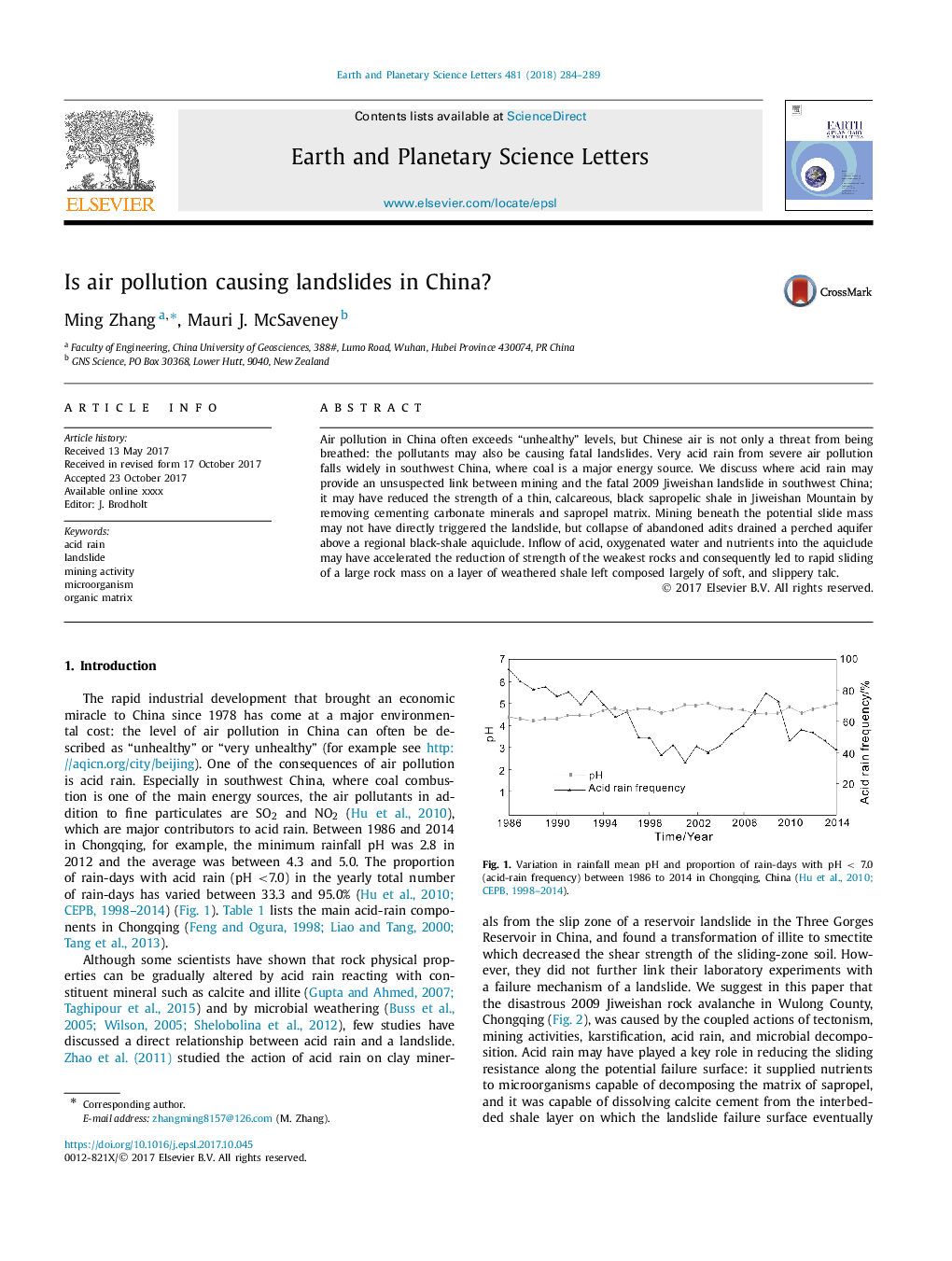| Article ID | Journal | Published Year | Pages | File Type |
|---|---|---|---|---|
| 8907356 | Earth and Planetary Science Letters | 2018 | 6 Pages |
Abstract
Air pollution in China often exceeds “unhealthy” levels, but Chinese air is not only a threat from being breathed: the pollutants may also be causing fatal landslides. Very acid rain from severe air pollution falls widely in southwest China, where coal is a major energy source. We discuss where acid rain may provide an unsuspected link between mining and the fatal 2009 Jiweishan landslide in southwest China; it may have reduced the strength of a thin, calcareous, black sapropelic shale in Jiweishan Mountain by removing cementing carbonate minerals and sapropel matrix. Mining beneath the potential slide mass may not have directly triggered the landslide, but collapse of abandoned adits drained a perched aquifer above a regional black-shale aquiclude. Inflow of acid, oxygenated water and nutrients into the aquiclude may have accelerated the reduction of strength of the weakest rocks and consequently led to rapid sliding of a large rock mass on a layer of weathered shale left composed largely of soft, and slippery talc.
Related Topics
Physical Sciences and Engineering
Earth and Planetary Sciences
Earth and Planetary Sciences (General)
Authors
Ming Zhang, Mauri J. McSaveney,
